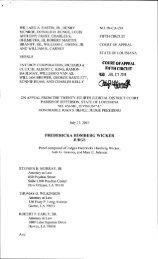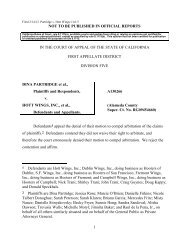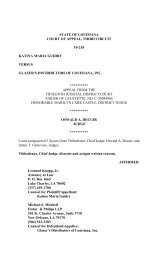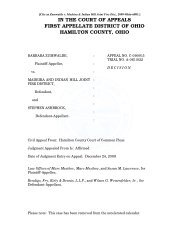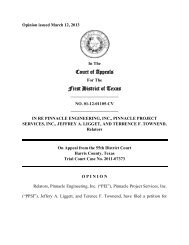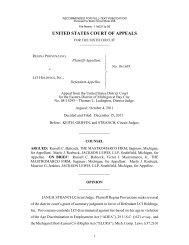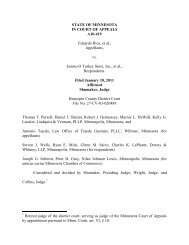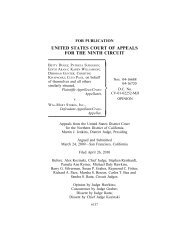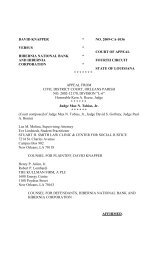BALEN v. HOLLAND AMERICA LINE - LawMemo
BALEN v. HOLLAND AMERICA LINE - LawMemo
BALEN v. HOLLAND AMERICA LINE - LawMemo
You also want an ePaper? Increase the reach of your titles
YUMPU automatically turns print PDFs into web optimized ePapers that Google loves.
14224 <strong>BALEN</strong> v. <strong>HOLLAND</strong> <strong>AMERICA</strong> <strong>LINE</strong><br />
1. HAL is party to the CBA.<br />
Balen contends that the district court’s finding that HAL<br />
was a party to the CBA was clearly erroneous. We disagree.<br />
Review under the clearly erroneous standard is significantly<br />
deferential, requiring a “definite and firm conviction<br />
that a mistake has been committed.” Easley v. Cromartie, 532<br />
U.S. 234, 242 (2001) (internal quotation marks omitted); Lentini<br />
v. Cal. Ctr. for the Arts, Escondido, 370 F.3d 837, 843<br />
(9th Cir. 2004). If the district court’s account of the evidence<br />
is plausible in light of the entire record, the court of appeals<br />
may not reverse, even if it would have weighed the evidence<br />
differently. See Husain v. Olympic Airways, 316 F.3d 829,<br />
835 (9th Cir. 2002), aff’d, 540 U.S. 644 (2004).<br />
[10] Nothing in the record indicates that the district court’s<br />
finding was clearly erroneous. The CBA itself indicates that<br />
HAL is a party. The cover page states: “COLLECTIVE BAR-<br />
GAINING AGREEMENT BETWEEN AMOSUP ASSOCI-<br />
ATED MARINE OFFICERS’ AND SEAMEN’S UNION OF<br />
THE PHILIPPINES AND <strong>HOLLAND</strong> <strong>AMERICA</strong> <strong>LINE</strong><br />
INC. REPRESENTED BY UNITED PHILIPPINE <strong>LINE</strong>S,<br />
INC.” Balen contends, however, that HAL is not a party to the<br />
CBA, because UPL signed the CBA on HAL’s behalf.<br />
Balen’s argument is without merit, however, because a corporation<br />
must use employment agencies licensed by the POEA<br />
to employ Filipino Seamen. Accordingly, HAL had no choice<br />
but to engage an agency like UPL to represent it. Because<br />
ordinary contract and agency principles apply to arbitration<br />
agreements, see Letizia v. Prudential Bache Sec., Inc., 802<br />
F.2d 1185, 1187-88 (9th Cir. 1986), that UPL signed the CBA<br />
on HAL’s behalf renders HAL a party to the agreement. The<br />
district court did not clearly err when it found that HAL was<br />
a party to the CBA.



